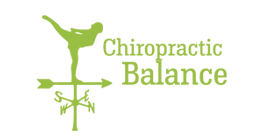As the weather continues to improve, many of us are finding that extra incentive to enjoy the sun, get outside more often and get stuck into some regular healthy exercise. But what kind of exercise? What kind of intensity? Does your exercise regime fit your unique body, mind and lifestyle? Exercise is personal. What works for one person may not be perfect for another. If you can learn to understand your body then you’ll be better able to choose the right kind of exercise to enhance ultimate health, fitness and longevity.
We find that when choosing an exercise plan, it’s important to remember the purpose of exercise: to balance out your stress levels. If you sleep well, eat well and manage stress well, then putting your body under a bit more physiological stress will be good for you. Conversely, if you sleep poorly, eat poorly, and find it difficult to manage stress, then your best option is to choose some lower intensity options.
For women, our body finds it hard to differentiate between real and perceived stress. Therefore, putting our body under the stress of high intensity exercise spikes the stress hormones – our cortisol and adrenaline levels, which trigger our fight/flight response. This has a converse effect of lowering progesterone production – meaning we don’t have enough of the all important calming hormone to counter-balance cortisol. Generally speaking, most women thrive on exercise that stimulates their parasympathetic rest and digest hormone progesterone – such as breathing based exercise such as yoga.
For men, exercise helps to improve liver function and burn testosterone. If we’re not burning testosterone then the body converts it to oestrogen which promotes fat storage and increases weight. Generally speaking, most men thrive on testosterone burning exercises – such as a mixture of aerobic and anaerobic training.
It’s always helpful to have a balance of cardio, strength based training, and restorative movement as they all bring something different to your mental and physical health. But when choosing what exercise to do for these three areas, bear in mind how your body is already coping.
According to Ben Warren of BePure, these are the three kinds of exercise that may be right for you:
(1) CARDIO-BASED MOVEMENT
This is important for managing blood pressure, as well as improving mood and energy.
For people with low levels of stress, good sleep and nutrition;
- Running, Cross-training, rowing and cycling
- Team based sports such as netball, touch rugby, ultimate frisbee, basketball or soccer
- Surfing, swimming and water sports
- High-Intensity Interval Training using exercises like burpees, squat jumps or box jumps
For people with adrenal fatigue, high levels of stress, poor sleep or nutrition:
- Walking, aim to walk to a brisk pace while still being able to hold a conversation
- Gentle swimming or aqua aerobics
- Surfing and watersports, simply shorten the duration
- Golf
- Hiking
(2) STRENGTH TRAINING
This is important for metabolic health, maintaining muscle mass and supporting bone health as you age.
For people with low levels of stress, good sleep and nutrition:
- A weights program at the gym
- Group fitness classes such as Body Pump or Circuit classes
- Bootcamp style classes which mix cardio with strength – ensure adequate recovery between sessions
- CrossFit – ensure you’re working with a good coach and have adequate recovery between sessions
- Hiking in the bush with packs, gear or even children on your back
For people with adrenal fatigue, high levels of stress, poor sleep or nutrition:
- A yoga class using bodyweight as resistance walking while pushing a ram or carrying groceries
- Body weight exercises based on functional movements such as squats, push ups, pull ups, lunges and core exercises
- Paddle boarding
- When starting to include strength training using weighted equipment. It’s a good idea to start out with a trainer or in a group fitness class to ensure you have the correct technique to prevent injury
(3) RESTORATIVE EXERCISE
This is important for flexibility and mobility, supporting your detoxification pathways, your lymphatic system, and your joints.
For people with low levels of stress, good sleep and nutrition:
- Bikram or hot yoga
- Reformer pilates
For everybody
- Yoga
- Pilates
- Tai Chi
- Body Balance
- Walking in nature
- Paddle boarding
Finally, lets finish with 5 tips for finding the right type of exercise for you:
- Find exercise you can enjoy. If you like to be out in nature, get outdoors and go for a walk or a run. While the gym is great for some people it is not for everyone.
- Do it daily. At least 30 minutes a day is ideal, and learn to be consistent. Small changes over a longer time period reap more changes if you are consistent than 4 weeks of intense workouts.
- Something that’s easy to build into your day. Perhaps walk or bike home from work and turn your travel into active transport, or find a yoga class on the way to or from work.
- Exercise you can do with a friend. Finding a friend to be your accountability buddy is great motivator and more fun!
- Choose to relax if you need to. If you’re feeling stressed take some time off more intensive exercise and focus on allowing your body to rest.
References:
- www.bepure.co.nz/blogs/news/exercise-helping-hormones
- www.bepure.co.nz/blogs/news/exercise-right-for-you


